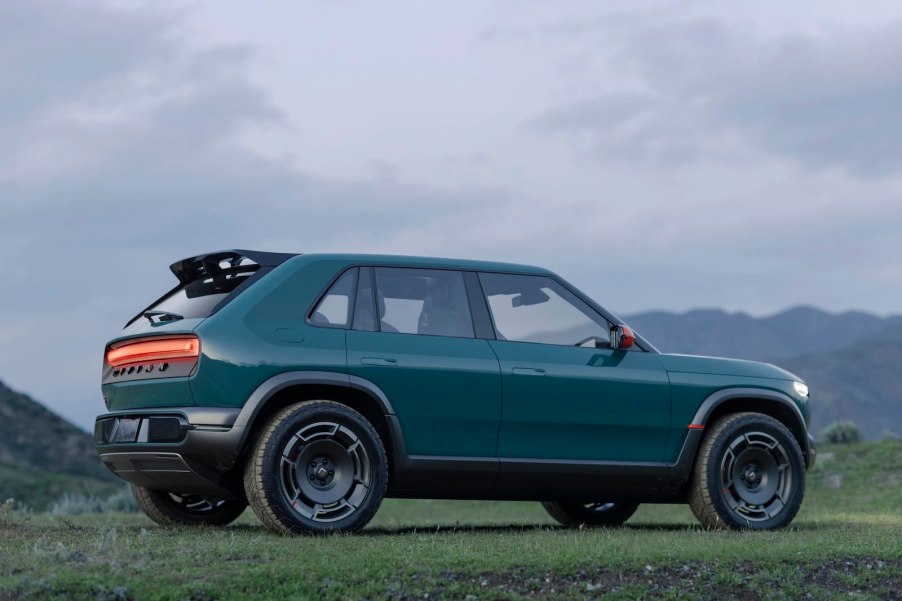
VW Guarantees a Future for Rivian–and EVs–With $5B Investment
This is it: The tipping point. The watershed moment. A deal with Volkswagen secured the future of the EV startup Rivian. And if I had to wager, I’d say we’ll look back on this deal as paving a way to a future with a majority electric vehicle automotive fleet.
Rivian was grinding for half a decade before you heard its name. It brought the first ever electric pickup truck to market with its 2021 R1T. The multiple issues plaguing the Tesla Cybertruck and Fisker Ocean illustrate just how hard it is to bring a brand new EV to market. The Rivian R1T and is SUV counterpart (surprisingly called the R1S) have been noticeably free of software glitches and hardware issues. This is what happens when an automaker puts in the work.
That much R&D takes a long time to pay off. In fact, Rivian is still losing $40k on every R1T and R1S it delivers. But these things work. And as EV companies go, Rivian’s valuation is second only to Tesla. It announced a smaller, more profitable crossover-sized chassis in hopes of plugging its financial leaks. But the fall of its stock value after the initial IPO make it clear that investors aren’t sold.
Meanwhile, Volkswagen has been struggling. Its ID.4 crossover EV hasn’t been able to catch the world’s most popular vehicle, Tesla’s Model Y. It announced a direct Rivian competitor, wearing the old International Scout nameplate. VW Group CEO Herbert Diess set up an EV software division named Cariad. But this subsidiary has gone so far past schedule and over budget that Diess resigned.

At the end of June, 2024, Volkswagen and Rivian announced a joint venture. Rivian will license its EV hardware and software to the equally-controlled joint venture. Said business will then provide technology for the upcoming R2 series, as well as future EVs from VW, International, Audi, Porsche, Lamborghini, and Bentley.
In return, VW is putting up $5 billion. Two billion of this will go into the joint venture. But another two billion will go straight into Rivian stocks, one billion each in 2025 and 2026. Another one billion of this is a loan that will be available to Rivian in 2026, if it needs it. But in the wake of the announcement, its stock values surged 50%, bumping its valuation by $6 billion.
The OEM and EV startup partnership dance has been a game of musical chairs. Both Ford and GM courted Rivian at one point. Even Jeff Bezos made some major investments when he ordered Amazon delivery trucks from the startup. But these suitors became lukewarm as Rivian’s value fell. And no one ever offered close to a $5 billion investment. VW Group periodically trades the distinction of being the world’s largest auto manufacturer with Toyota. Its investment obviously means a lot for Rivian. But it means something else.
Toyota has historically dragged its feet in EV production, instead developing new hybrids. With the EV market cooling, Ford and GM are both waffling on future electric products. Most automakers have enjoyed profits for decades, or even a century, virtually uninterrupted. So quarterly losses have their shareholders running for the hills. None of them seemed structured to invest in the research and development necessary for good, reliable EVs. Until now. If, in a decade, most of our fleet is electric, we may look back at the VW-Rivian deal as the moment everything changed.
Next, find out what makes Rivian America’s “most loved” automotive brand, or see more coverage of the Rivian-VW joint venture in the video below:



